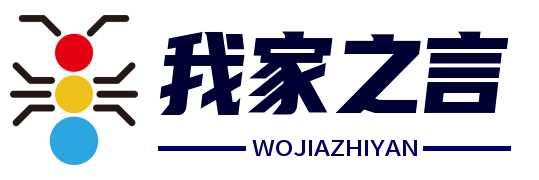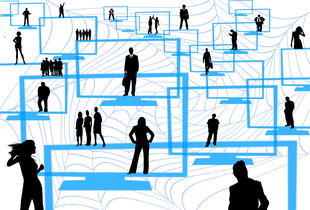
随着科技的飞速发展,我们所处的世界正在经历一场前所未有的变革,在这个信息爆炸的时代,英语作为国际交流的通用语言,其重要性不言而喻,而高科技的发展,不仅改变了我们的生活方式,也对英语作文和翻译领域产生了深远的影响,本文将探讨高科技如何影响英语作文与翻译,并展望这一领域的未来。
让我们回顾一下高科技对英语作文的影响,在过去,写作是一个相对孤立的过程,作者需要依靠自己的知识和经验来完成作品,随着互联网的普及和人工智能技术的发展,写作变得更加便捷和高效,现在有许多在线写作工具和软件,它们可以帮助作者检查语法错误、提供词汇建议,甚至生成初稿,这些工具不仅提高了写作的效率,也使得英语作文的质量得到了显著提升。
高科技还为英语作文提供了更广阔的平台,社交媒体和博客等平台的兴起,使得每个人都可以成为内容创作者,人们可以通过这些平台分享自己的观点和故事,与全球的读者进行交流,这种互动性不仅激发了人们的创作热情,也促进了英语作文的多样性和创新。
我们来探讨高科技对翻译领域的影响,传统的翻译工作往往需要翻译者具备深厚的语言功底和文化背景知识,随着机器翻译技术的发展,翻译工作正在经历一场革命,机器翻译,尤其是基于神经网络的翻译模型,已经能够处理大量的语言对,并在准确性和流畅性上取得了显著的进步,这些技术不仅提高了翻译的速度,也降低了成本,使得翻译服务更加普及。
机器翻译并非完美无缺,尽管它们在处理日常对话和简单文本方面表现出色,但在处理复杂的语言结构、文化差异和细微的语境变化时,仍然存在局限性,人工翻译在某些领域仍然不可或缺,未来的翻译工作可能会更多地依赖于人机协作,即利用机器翻译的效率和人工翻译的精确性,共同完成高质量的翻译任务。
展望未来,高科技将继续推动英语作文与翻译领域的发展,随着人工智能技术的不断进步,我们可以预见,未来的写作和翻译工具将更加智能化和个性化,未来的写作工具可能会根据作者的写作风格和偏好,提供更加定制化的建议和支持,而翻译技术则可能会更加深入地理解语言的细微差别,提供更加自然和准确的翻译结果。
高科技为英语作文与翻译领域带来了前所未有的机遇和挑战,在这个充满变革的时代,我们需要不断学习和适应,以充分利用这些技术带来的便利,我们也应该意识到,尽管技术可以提高效率和准确性,但人类的创造力和文化理解力仍然是不可替代的,在未来的发展中,我们应该寻求技术与人文的平衡,以实现更加丰富和多元的文化交流。
翻译: Exploring High-Tech: A New Era for English Composition and Translation
With the rapid development of technology, the world we live in is undergoing an unprecedented transformation. In this era of information explosion, English, as the universal language for international communication, is more important than ever. The advancement of high-tech has not only changed our way of life but also had a profound impact on the fields of English composition and translation. This article will explore how high-tech affects English composition and translation and look forward to the future of these areas.
First, let's review the impact of high-tech on English composition. In the past, writing was a relatively isolated process, where authors had to rely on their own knowledge and experience to complete their works. However, with the popularity of the internet and the development of artificial intelligence technology, writing has become more convenient and efficient. For example, there are now many online writing tools and software that can help authors check grammar errors, provide vocabulary suggestions, and even generate drafts. These tools not only improve writing efficiency but also significantly enhance the quality of English compositions.
Moreover, high-tech has provided a broader platform for English composition. The rise of social media and blogs has allowed everyone to become content creators. People can share their opinions and stories through these platforms and communicate with readers worldwide. This interactivity not only stimulates people's creative enthusiasm but also promotes the diversity and innovation of English compositions.
Next, let's discuss the impact of high-tech on the translation field. Traditional translation work often requires translators to have a deep understanding of language skills and cultural background knowledge. However, with the development of machine translation technology, translation work is undergoing a revolution. Machine translation, especially neural network-based translation models, has been able to handle a large number of language pairs and has made significant progress in accuracy and fluency. These technologies not only increase translation speed but also reduce costs, making translation services more accessible.
However, machine translation is not without flaws. Although they perform well in handling daily conversations and simple texts, they still have limitations when dealing with complex language structures, cultural differences, and subtle contextual changes. Therefore, human translation is still indispensable in certain areas. Future translation work may rely more on human-machine collaboration, using the efficiency of machine translation and the precision of human translation to complete high-quality translation tasks together.
Looking to the future, high-tech will continue to promote the development of the fields of English composition and translation. With the continuous progress of artificial intelligence technology, we can foresee that future writing and translation tools will become more intelligent and personalized. For example, future writing tools may provide more customized suggestions and support based on the author's writing style and preferences. Translation technology may also gain a deeper understanding of the subtleties of language, providing more natural and accurate translation results.
In summary, high-tech has brought unprecedented opportunities and challenges to the fields of English composition and translation. In this era of change, we need to keep learning and adapting to fully utilize the convenience brought by these technologies. At the same time, we should also realize that although technology can improve efficiency and accuracy, human creativity and cultural understanding are irreplaceable. In future development, we should seek a balance between technology and humanities to achieve richer and more diverse cultural exchanges.









